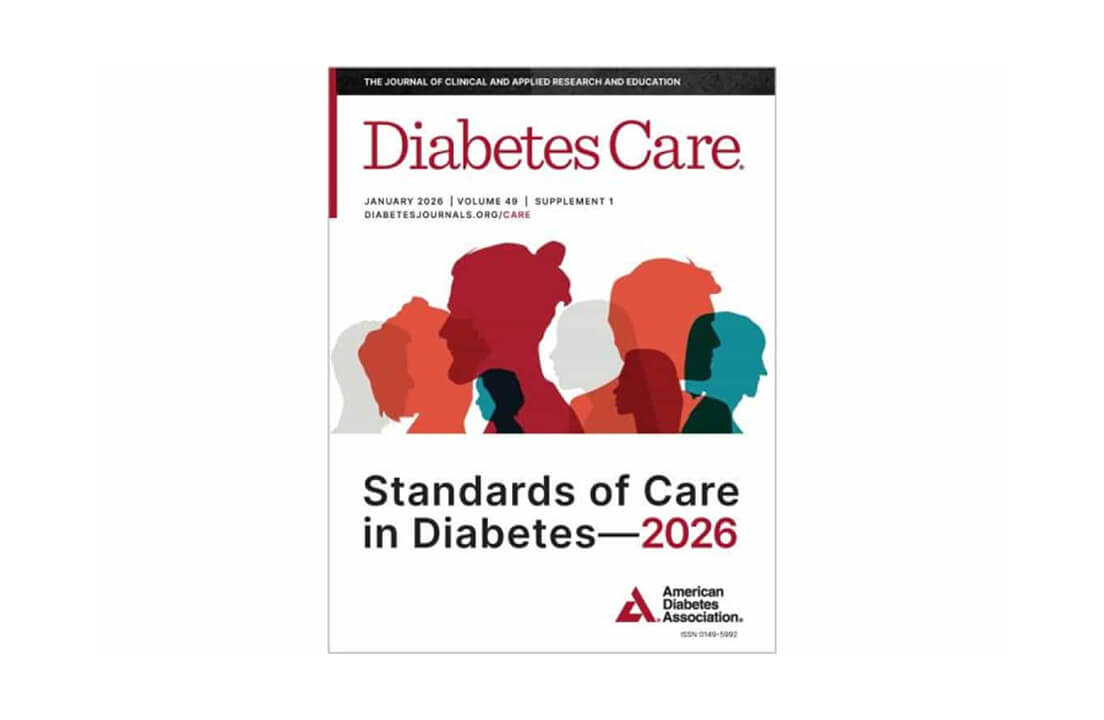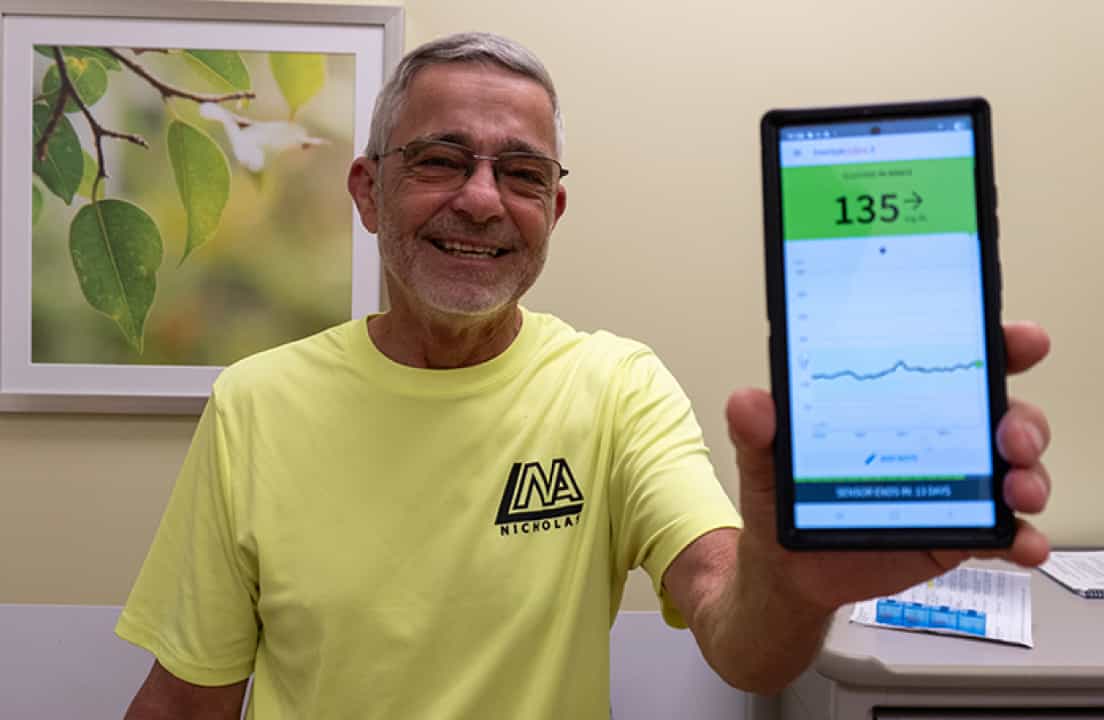T1D Guide
T1D Strong News
Personal Stories
Resources
T1D Misdiagnosis
T1D Early Detection
Research/Clinical Trials
PCOS and Type 1 Diabetes: What’s the Link?
Polycystic ovarian syndrome, often referred to as PCOS, is a common endocrine disorder that is believed to affect around 7−10% of reproductive-age women or people assigned female at birth (AFAB). In the United States alone, there are a believed five to six million people living with PCOS.

However, these statistics change drastically when looking at those living with type 1 diabetes (T1D). People with diabetes mellitus (DM) are at higher risk of developing PCOS than the general population. In fact, about one to four diabetic women also have PCOS.
So, let’s look into what PCOS is, what its causes come from, and how it relates to those living with type 1 diabetes.
What is PCOS?
PCOS is a disorder that primarily affects premenopausal women or AFAB people, though it can occur at any age following puberty. It’s often misdiagnosed but can be managed through your healthcare provider. Abnormal hormone levels and irregular periods are a few of the signs of PCOS.
Causes of PCOS
The direct cause of polycystic ovary syndrome is not entirely known. It is believed to have a genetic and environmental component like T1D. As genetic variants play a role, about 50 % of sisters with PCOS may share common traits of the condition.
PCOS is marked within the body by small “cysts” that occur on the ovaries. Despite the disorder's name, these cysts are not cancerous or even technically cysts. The small fluid-filled sacs are actually harmless follicles that can be found in some women or AFAB people with PCOS. They can be identified through an ultrasound examination and are underdeveloped egg sacs that do not release an egg for ovulation. Enlarged ovaries also mark PCOS due to the accumulation of the follicles.
An increase in the hormone androgen also characterizes PCOS. Androgen is a steroid hormone found in both sexes, though it is higher in men and people assigned male at birth as it regulates the development of male sex characteristics.
For women and AFAB people living with PCOS, there is an androgen excess within the body. This is referred to as ovarian hyperandrogenism, and the imbalance in hormone levels can contribute to the struggles with fertility and ovulation that are seen in PCOS symptoms.
PCOS Symptoms
Symptoms of PCOS can include the following:
- Abnormal hair growth on places like the chest, chin, stomach and back
- Weight gain
- Missed, irregular or abnormally light periods
- Acne
- Receding hairline and hair thinning
- Infertility
- Mental health struggles such as anxiety or depression
- Abdominal pain, pelvic pain, and sexual dysfunction

However, these symptoms can occur in a variety of different complications, so tests such as ultrasounds to check the ovaries for follicles and blood tests to check androgen levels can be done to see if someone meets the PCOS diagnostic criteria.
PCOS and Diabetes
Like any experience with comorbidity, dealing with both PCOS and type 1 diabetes has its added challenges. In addition to the more visible physical symptoms listed earlier, PCOS can contribute to high insulin levels and insulin resistance in people living with or without type 1 diabetes.
Due to this increase in insulin resistance, PCOS can lead to the development of type 2 diabetes in individuals who don't already have type 1 diabetes. For those with type 1, however, insulin resistance can make it harder to manage blood glucose levels as the exogenous insulin you take struggles to be used by the body. Different things can help with insulin sensitivity, such as increasing your daily insulin dose, taking insulin sensitizers (thiazolidinedione) or making lifestyle changes that promote natural methods of lowering blood sugar, such as aerobic exercise.
PCOS Health Risks
The sooner PCOS is diagnosed, the better, as women with PCOS double their risk of cardiovascular problems like heart disease and strokes. Moreover, women with PCOS may be at an increased risk of developing high blood pressure and endometrial cancer. Also, as PCOS affects women with a higher body mass index (BMI), it can also affect normal and underweight individuals.

PCOS, Type 2 Diabetes and Gestational Diabetes
Additionally, because of the effect on hormones and hormonal control within the reproductive system from PCOS, the disorder can cause a higher risk of gestational diabetes. The National Institutes of Health identifies PCOS as an independent and common risk factor for gestational diabetes.
Managing PCOS and Type 1 Diabetes
In a study published in the Diabetes Care journal, researchers reported slightly higher hemoglobin A1C in individuals with type 1 diabetes and PCOS than in those with only type 1 diabetes.
Furthermore, the study identified women or AFAB people living with diabetes as being 25% more likely to have androgen excess-related traits, such as abnormal hair growth (hirsutism) and menstrual dysfunction.
PCOS Treatment
Treatment for PCOS can look like a variety of factors. While there is no cure, there are several different approaches people living with PCOS, with or without type 1 diabetes, can take to their treatment depending on their personal health goals and symptoms.
Birth Control
Birth control pills that contain both estrogen and progesterone also referred to as combination birth control pills, can be used to treat PCOS as they decrease androgen production and regulate the body’s estrogen.
However, it's important to note for people living with T1D that some birth control can affect blood glucose levels. Speaking with your endocrinologist and noticing trends within your body concerning BG levels can help you understand how birth control affects your blood sugar levels and insulin resistance.
Anti-androgens
Similar to combination birth control pills, anti-androgen medication can be used to treat PCOS by mitigating the overproduction of androgen in the body that causes PCOS. In a recent systematic review, the Lancet found that anti-androgens and combined oral contraceptive pills may mitigate PCOS symptoms.
Lifestyle
A more active, regular lifestyle that contains ample exercise, healthy eating, and sleep can help mitigate some of the symptoms of PCOS, such as acne and weight gain. Though, lifestyle change alone is not a complete treatment for the specific complications of PCOS, weight loss can help.

Surgery
Adult women or AFAB people with PCOS can receive a surgical procedure called laparoscopic ovarian drilling (LOD) to induce ovulation for those struggling with infrequent or non-existent menstrual cycles. Still, this treatment is rare and usually only used when hormonal-based medications fail to work.
Final Thoughts
Like any condition, PCOS has individual struggles that can be different among those living with it. For those with both PCOS and type 1 diabetes, a dedicated team of doctors such as gynecologists, endocrinologists, and dietitians who specialize in PCOS and diabetes can be beneficial in understanding and managing your symptoms and deciding what treatment options are right for you.


.webp)





.webp)
.jpg)
.jpeg)

.webp)
.jpg)
.jpg)




.jpg)



.jpg)




.jpg)

.jpg)



.jpg)

.jpg)




.jpg)
.jpg)
.jpg)
.jpg)
.jpg)
.jpg)
.jpg)

.jpg)
.jpg)

.jpg)



.jpg)
.jpg)
.jpg)

.jpg)

.jpg)














.jpg)


.jpg)


















.webp)





















.webp)